
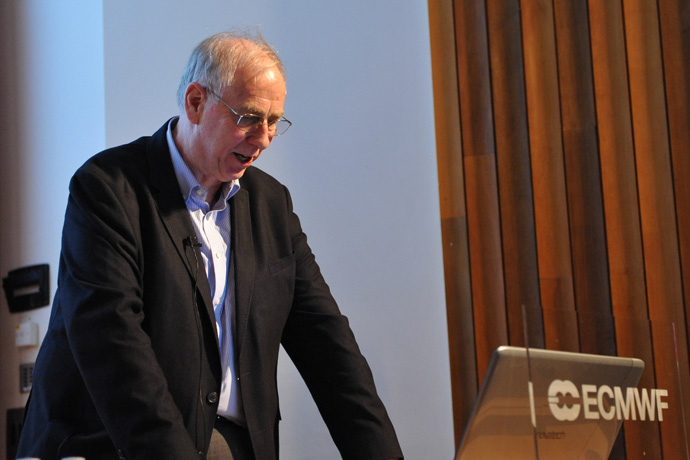
Adrian concluded the symposium by thanking the speakers and his colleagues at ECMWF.
Speakers at a symposium held at ECMWF on 8 December outlined the remarkable contributions to numerical weather prediction (NWP) made by Adrian Simmons in the course of a career spanning five decades.
From modelling and data assimilation to supercomputing, Adrian has had a leading role at the Centre in nearly every area of NWP. He has also published numerous scientific papers on a broad range of topics.
In later years, he increasingly used his expertise to help develop environmental services in NWP-related areas, such as climate change and atmospheric composition.
Research at the University of Reading
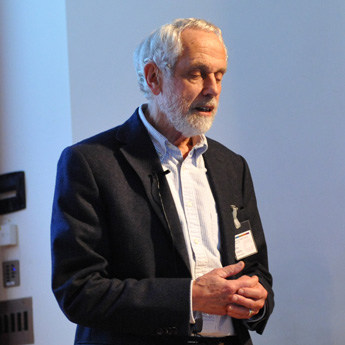 Adrian became a postdoctoral researcher at the University of Reading in 1972 after completing his PhD in Cambridge.
Adrian became a postdoctoral researcher at the University of Reading in 1972 after completing his PhD in Cambridge.
Sir Brian Hoskins, who is now Professor of Meteorology at the University of Reading and Chair of the Grantham Institute for Climate Change at Imperial College London, remembered the “very exciting time” he had with Adrian at Reading.
“We could use numerical models which were good enough to go from the old pencil-and-paper theory and put in the spherical domain and realistic jets and take it into a non-linear domain.”
“The collaboration with Adrian was extremely enjoyable professionally as well as personally.”
NWP at ECMWF
In 1978 Adrian took up a post as Head of the Numerical Aspects Section at ECMWF.
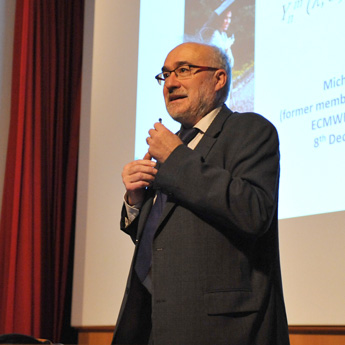 Former Secretary-General of the WMO Michel Jarraud, who started at ECMWF at about the same time, hailed him as an “outstanding team leader and project manager” who “brilliantly combined theoretical rigour with pragmatism”.
Former Secretary-General of the WMO Michel Jarraud, who started at ECMWF at about the same time, hailed him as an “outstanding team leader and project manager” who “brilliantly combined theoretical rigour with pragmatism”.
“He was always keen to convince people instead of dictating to them, and he was incredibly fair.”
His only flaw was that "he wasn’t that good at speaking French", Mr Jarraud joked.
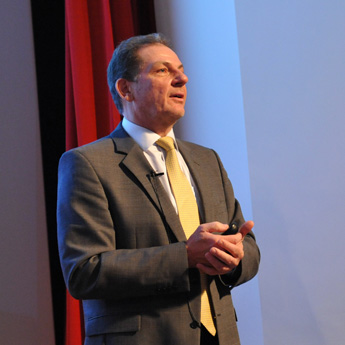 Adrian went on to become Head of the Model Division in 1992 and, three years later, Head of the Data Division.
Adrian went on to become Head of the Model Division in 1992 and, three years later, Head of the Data Division.
Former ECMWF Director of Operations Walter Zwieflhofer remembered how Adrian became increasingly involved in supercomputer procurement.
“His broad knowledge, including of high-performance computing, was amazing,” he said.
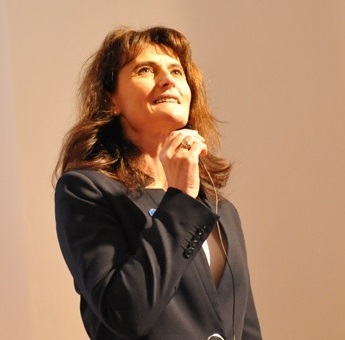
In the same period Adrian also managed the transition to variational data assimilation.
ECMWF Director-General Florence Rabier worked on the implementation of 4D-Var at the time.
She pointed out that Adrian remained “calm and supportive” even when the success of the project seemed to hang in the balance.
Climate reanalysis
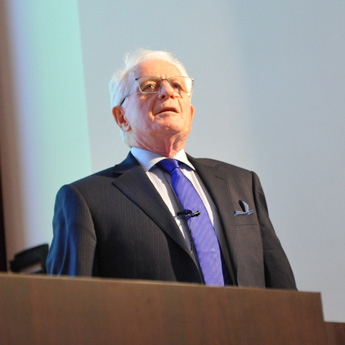
Adrian’s responsibilities as Head of the Data Division included climate reanalysis.
It was a new activity at the Centre that soon grew from strength to strength.
"One of Adrian’s greatest achievements is to have made ECMWF reanalyses a cornerstone of the Copernicus Climate Change Service (C3S),” said David Burridge, ECMWF Director from 1991 to 2004.
He pointed out that in November 2017 for the first time ECMWF reanalysis data was used in the WMO’s provisional Statement on the State of the Global Climate.
The Global Climate Observing System
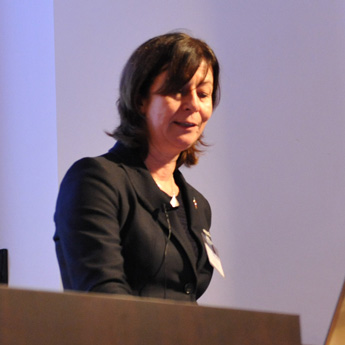 Adrian first became involved in the Global Climate Observing System (GCOS) programme in 2002, serving as chairman of the Atmospheric Observation Panel for Climate from 2007, and from 2010 to 2014 also as chairman of the GCOS Steering Committee.
Adrian first became involved in the Global Climate Observing System (GCOS) programme in 2002, serving as chairman of the Atmospheric Observation Panel for Climate from 2007, and from 2010 to 2014 also as chairman of the GCOS Steering Committee.
It meant that he had to become a “climate politician”, said Carolin Richter, the Director of the GCOS Secretariat.
She highlighted that, in 2014, he co-authored an influential paper on ‘The Concept of Essential Climate Variables in Support of Climate Research, Applications, and Policy’.
One year later, he was the lead author of the report on the Status of the Global Observing System for Climate.
Atmospheric composition
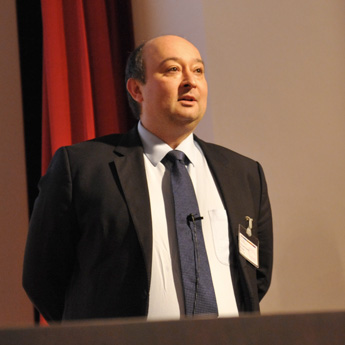 When the first atmospheric composition forecasts were produced at ECMWF in May 2007, Adrian was leading ECMWF's contribution. Soon after he took full responsibility for developing prototype Copernicus services on atmospheric composition from Tony Hollingsworth.
When the first atmospheric composition forecasts were produced at ECMWF in May 2007, Adrian was leading ECMWF's contribution. Soon after he took full responsibility for developing prototype Copernicus services on atmospheric composition from Tony Hollingsworth.
“Adrian helped Tony assemble a team and worked to guide the project from research to operations,” said Vincent-Henri Peuch, the Head of the EU-funded Copernicus Atmosphere Monitoring Service (CAMS) operated by ECMWF.
Important subsequent milestones in the development of CAMS have been the inclusion of chemistry in ECMWF’s Integrated Forecasting System in 2014 and a resolution upgrade in 2016.
“Adrian had a secret weapon: his British humour,” Dr Peuch said.
“A very special place”
Adrian concluded the symposium by thanking the speakers and the event organiser, Head of C3S Jean-Noël Thépaut. He said ECMWF had been “a very special place to be”.
With characteristic modesty, he said that he had been “dealt a good hand”.
“I am pleased that I have been able to use my expertise to help advance NWP in an operational setting and that, through my work for C3S and CAMS, I have made a contribution to the development of NWP-related environmental services,” he says.
Although he is now largely retired, Adrian continues to work 40 days a year for ECMWF as a consultant.
“I feel that I can still make a small but useful contribution to the work of the Centre.”
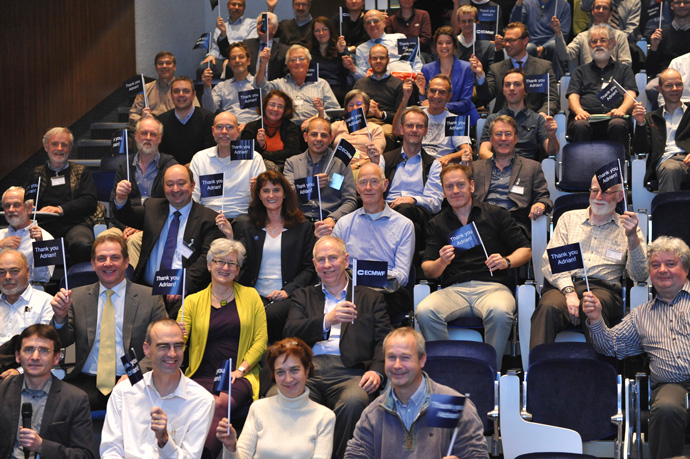
The audience included former as well as current colleagues of Adrian Simmons.
More information
Presentations and recordings of the talks are available on the symposium web page.
